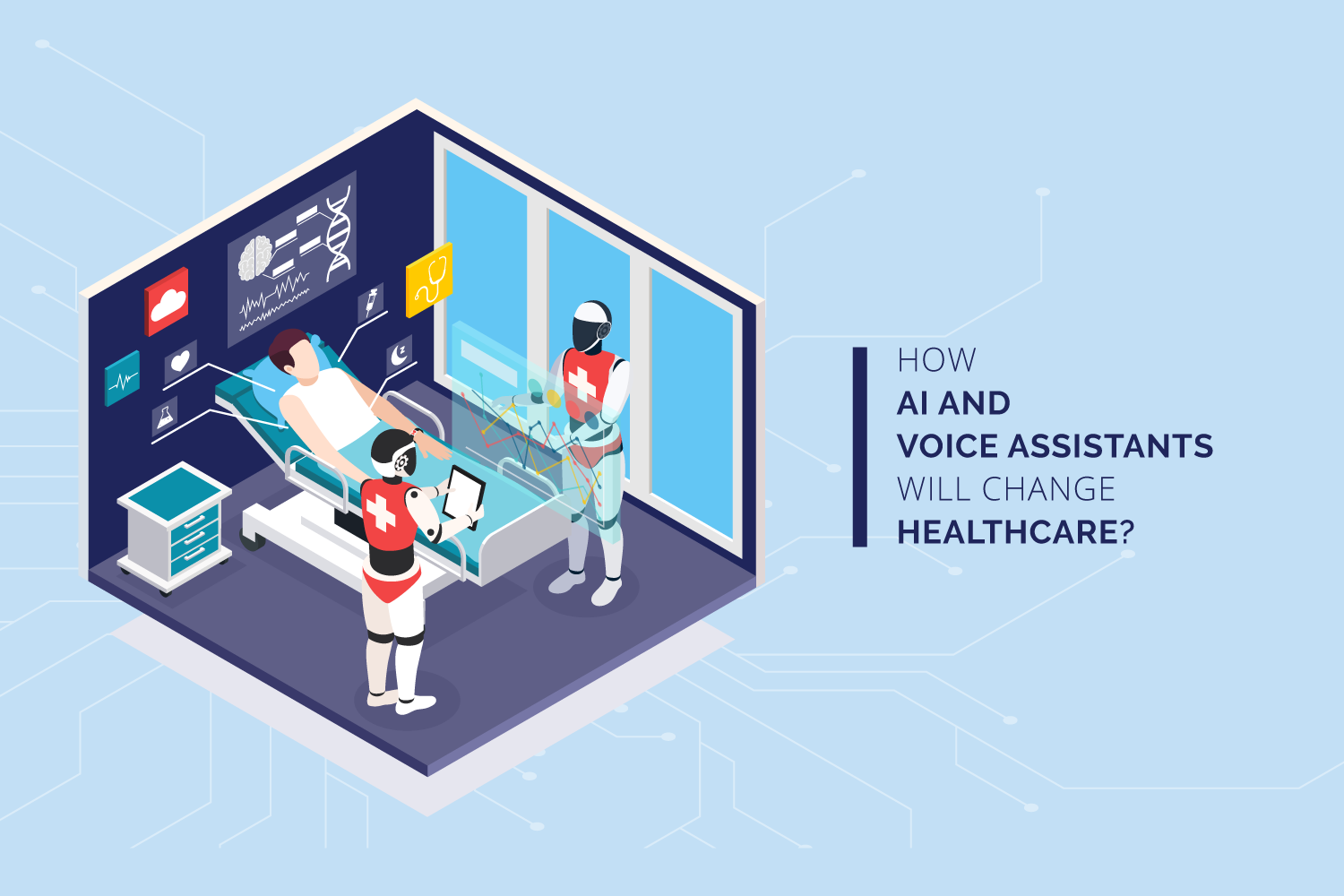How AI and Voice Assistants Will Change Healthcare
Artificial Intelligence will have two groups of potential users -- patients and physicians.

Healthcare is one of the fastest evolving sectors of the economy. New policies, advances in research, new drugs, and treatment strategies as well as new and cutting technology, continue to dominate the multibillion-dollar industry. Due to the critical nature of the sector in saving lives and ensuring the wellbeing of the general population, efforts to streamline it are being undertaken through the application of modern technology. Artificial Intelligence (AI) will save costs, lives, and make operations within the sector smooth running. Technology can unlock massive opportunities in the sector and help tackle some of the longstanding challenges. This has made the rush for disruptive technologies within the healthcare sector quite competitive.
Voice assistants are vastly becoming a popular augmentation in most of the technologies that are used today across different sectors and disciplines. Most individuals are now familiar with products like Ok Google and Hey Siri that are used on Android and Apple devices respectively. This program now exists in most of the personal devices but it is not yet fit for the medical industry. However, the prospects of voice assistant as a game-changer in the healthcare industry are high. This technology will have two groups of potential users: namely, patients and physicians. Physicians will utilize the technology to take notes and access medical records. This will potentially save physicians chunks of time allowing them to devote most of the time to patients. Increased conduct time between patients and physicians will have the ripple impact of improving the quality of health services. Data entry and documentation is an extremely strenuous and time-consuming task for physicians. This will make voice assistants extremely valuable in the healthcare industry.
On the patients' side, the voice assistant will offer a much needed and affordable alternative to office visits. Patients who live far away from healthcare facilities will be the biggest beneficiaries of the voice assistants. This technology will spare them from long and tiring travels to health facilities. They will also not have to wait in the queue or book an appointment to see a physician.
The application of Artificial Intelligence (AI) in healthcare will not be restricted to voice assistants. Other potential areas of application include disease management and data collection. Perhaps the most publicized application of AI in the healthcare sector is its massive potential to detect, diagnose, and treat different ailments. Already, there is undergoing development of algorithms that will help warn of malignant cells in the human body long before they are detected by doctors. This will be a major medical breakthrough in the oncology area. These algorithms are driven by a section of artificial intelligence called deep learning. Deep learning allows the program to make a prediction based on historical patterns of disease and previous diagnosis. The program holds a lot of promise for fast-moving diseases with short life expectancy like cancer. Artificial intelligence (AI) will help to a larger extent in improving prognosis.
The application of AI and voice assistants in the healthcare industry is still in infancy; however, the future looks bright. Despite this, there are a host of challenges and issues that will need to be addressed before the technology is fully integrated into the industry. One of the major issues is the cost of implementation. The initial capital investment will be too huge for some hospitals to manage. This is likely to create disparities in healthcare quality for sections of the population that cannot afford to access hospitals that use AI and voice assistants.
Learn More About Allganize's Technology
